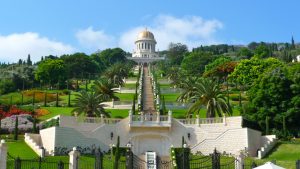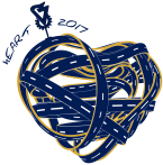Technion – Israel Institute of Technology
For more than eight decades the Technion – Israel Institute of Technology has been Israel’s primary technological university and the largest center of applied research. It is ranked among the leading technological universities in the world (32nd for Technical Sciences, 33rd for Natural Sciences from the QS World University Rankings 2009). Many innovations in all fields of science, technology, engineering and life sciences have their origins in research conducted at the Technion.
Technion researchers have won many prestigious international awards over the years, including three Nobel prizes awarded to Technion researchers in the last decade. The Technion occupies about 1,325,000 square meters and includes 100 buildings. There are more than 40 research centers, 11 research institutes and 10 Centers of Excellence. At present there are approximately 9,100 undergraduate students, 2,500 M.Sc. students and 900 Ph.D., M.D. and D.Sc. students – a total of about 12,665 students. Since 1929, 82,092 students have graduated. There are about 536 faculty members, 460 clinicians, adjuncts and instructors, 1,100 technical and administrative staff and 58 spin-off companies. Technion researchers participated in 80 projects (14Me) within FP5 and 83 FP6 projects. Under FP7 the Technion is currently managing 86 people projects.

The City: Haifa
Haifa, Israel’s third largest city, is situated in a broad natural bay between the Mediterranean Sea and the Carmel mountain range. The city’s terraced landscape offers a rich variety of breathtaking panoramas. The city has many museums and cultural centers as well as restored quarters, historic sites, and 17 km of beaches. Haifa’s famous tourist attraction is the Bahá’í World Centre, with the golden Shrine of the Báb and the surrounding gardens, considered one of the wonders of the world. The visitors will find in the city a seamless combination of modern occidental life with the rich traditional heritage of the country. For many, Haifa constitutes an example of tolerance to the region. Participants, their families and guests, will be able to relax on one of the best beaches in the country, enjoy the beauty of the Bahai Gardens, or take a cable car up the Carmel Mount. They will also be able to cross the Bay of Haifa to the fascinating historical city of Acco (Acre) and visit a traditional Druze village hidden in the Carmel National Park. Haifa is an excellent starting point for visiting tourist attractions such as Nazareth (40km), Sea of Galilee(60km) and Caesarea (40km). Jerusalem is only 150km away. For more information, visit the following web-sites:
- Haifa tourist board
- Israeli Ministry of Tourism
- Eye on Israel (interactive map of Israel)

Travel Information (Getting To Technion)
Ben Gurion Airport is Israel’s major international gateway. It is located on the outskirts of the Tel Aviv metropolitan area, 115km from the workshop venue. A ride between Ben Gurion Airport and Haifa should last about an hour to an hour and a half. The following transportation options are available:
- Train:
- There is direct train service (costs ₪41.5 ≈ $10.95) between Ben Gurion Airport and Haifa, with trains almost every hour all night long and, mostly, twice in an hour during the day (due to public transportation adherence to Shabbat observance, there is no trains between Friday at ≈14:30 and Saturday at ≈19:30). Tickets are purchased at the vendor or the automatic machines at the entrance to the train station. Your destination is Haifa Hof HaKarmelstation, which is the first stop in Haifa. From there take bus line 11 (25min, costs ₪6.9 ≈ $2, tickets can be purchased from the driver) to the Technion. If your destination is Forchheimer Guest House, you need either the first (faster, but a bit longer walk) or the last bus stop (the swimming pool) in the campus. A cab from Hof HaKarmel to the Technion should cost ₪70 ≈ $18.48 ).
- Taxi:
- Amal taxi operates shared taxi service from the Ben Gurion Airport to Haifa (costs ₪100 ≈ $27/ ₪120 ≈ $32 during Shabbat ours). This transport serves up to 10 passengers per vehicle and will leave the airport upon filling the cabin, so you may experience some wait time until departure. This service takes each passenger to her/his own destination, thus possibly prolonging the trip in Haifa itself. Alternatively, there are “individual” taxis from the airport (costs ₪340 ≈ $90; on Shabbat—between Friday evening and Saturday evening—the price may be higher). Taxis operate continuously regardless of Shabbat.
Weather in September : average daily temperatures are a minimum of (plus!) 22°C and a maximum of 28°C. Water temperature in the Mediterranean sea is 28°C.
Currency in Israel is Israeli New Sheqel (ILS or ₪). All major currencies are exchangeable. All major credit cards are usually acceptable in shops, restaurants, etc (but not in public transportation or by taxi drivers). For official exchange rates see here. More information regarding Israeli currency can be found here.
Electricity. The Israeli power supply is single phase 220 volts at 50 Hz. Most Israeli sockets are of the three-pronged variety (Type H) but should accept the Europlug and, in many cases, some other European two-pronged plugs (Types E and F) as well. Electric shavers, traveling irons and other small appliances may require adapters / transformers, which can be purchased in Israel.


